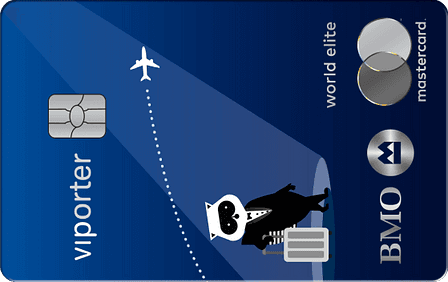
Can Credit Card Debt be Inherited?
Kevin Shahnazari
Author8 min read
It is a usual sight that credit card holders pay only the minimum amount payable while accruing the rest outstanding balance. But what happens to that outstanding balance if the credit cardholder passes away?
Quite often, the deceased's family gets afraid of the mere thought of paying that debt. The popular question when some credit card holder dies in Canada is if the debt can be inherited and passed on to the spouse and children or not.
Well, to your relief, the straightforward answer to this question is NO. It might be a sigh of relief to the family knowing that they won't be liable to pay the credit card debt as an inheritance. But there are some scenarios in which the debt settling by credit card companies might involve family. Care to know how it works and what happens to the outstanding debt after the death of a credit card holder in general? Read this article and get acquainted will valuable information on this topic.
Disclaimer: The information provided in this blog post is meant to provide general information and does not constitute legal advice. Your circumstances may vary from those described herein, and you should not take any action or refrain from any action based on any information found on this site without obtaining legal advice from a professional.
Who pays the outstanding debt?
In Canada, only the credit card holder is legally liable to pay off any outstanding debt. In the unfortunate incident of death, the law requires the credit card holder to settle the debt without disturbing any dependent or family member. You might be wondering how a dead person can pay off the debt. It implies that the estate of a dead credit card holder will be used to pay his/her loans and outstanding credit card bills.
The estate of the deceased credit card holder includes cash, property, and other valuable assets that have a resale value. Ideally, the cash is used to clear the outstanding credit card payment, but if the cash is not sufficient, then the assets are sold out till the debt is fully settled. Any leftover assets are then distributed among the heirs as per the Will of the deceased.
In this manner, the credit card holder pays the debt with his/her financial assets without passing on the debt to any other person. This seems fair as the family or beneficiary should not be asked to pay the amount they haven't agreed to or promised to return. In this time of inflation, it is quite challenging to figure out and pay someone else's debt, so the legal system in Canada protects the heir from any such legal binding.
What happens to outstanding debt if the estate fails to pay off
The most pressing question is, what happens to the outstanding debt if the assets or estate of the deceased fall short of paying back the whole debt? In this case, the credit card company will consider the debt 'uncollectable' and close the case.
The exception to the general rule
As I mentioned in the introduction, although legally, the family or beneficiaries are not liable to pay the debt, there can be an exception. The only exception is if the credit card holder has opened a joint account with a co-borrower. A co-borrower is as liable to pay any outstanding debt as the deceased credit card holder. As the terms of the credit card say, the beneficiary of such an account will be either or survivor. So, in this case, the surviving beneficiary will be legally bound to pay the debt to the credit card company. The co-borrower or beneficiary, in this case, can be anyone (family member, spouse, business partner)
What if the co-borrower lacks funds to pay the debt?
This is possible that the co-borrower is not in a good financial position to pay the debt. In such case, the co-borrower has two options that he/she can pursue, which include:
- Apply for debt consolidation loan: In Canada, the co-borrower can apply for a debt consolidation loan which is a kind of personal loan taken to settle the outstanding debt. This loan comes with relaxed conditions with a low-interest rate and reasonable terms to pay back the loan, which makes it a great option. But to attain this loan, you must have a promising credit score.
- Negotiate with a credit counselor: The other option is to negotiate with a credit counselor. He/she can offer you a debt relief plan after closely analyzing your financial condition and worth. This option is feasible when you don't have a good credit score to get a debt consolidation loan.
Are authorized users liable to pay back the outstanding credit card debt?
Realizing that a co-borrower in a joint account setup is liable to pay the credit card debt if one debtor passes away might have confused you as to what happens to the authorized users.
To understand the answer, you first need to get acquainted with what an authorized user is and how he/she is different from a co-borrower.
An authorized user is a person who is given access to the credit card by the primary credit card holder. The authorized user only uses the credit card perks on behalf of the primary credit card holder. The authorized user is listed when a person wants to authorize his/her spouse or children, or any other family member to use the credit card. It implies that, unlike the co-borrower, the authorized user never legally agreed to pay back any outstanding amount or be liable for any sort of payment or penalty.
Does community property law prevail in Canada to settle the credit card debt of the deceased?
In many countries around the globe, community property law prevails. This law says that if the loan was taken to conduct marriage, then both spouses are legally bound to pay back even if the name of one spouse is mentioned while taking a loan. In such a scenario, if one spouse dies, then the other has to pay back the loan. Luckily, in Canada, no such law of community property prevails. So unless your name is mentioned as a co-borrower in a joint account set up, then you won't be asked to clear the debt. You can mourn in peace without having to worry about the credit card payment.
What if the credit card company approaches you?
It might be possible that the credit card company approaches you to talk about the outstanding credit card debt even though you are not legally bound to pay the debt. In such a case, there is no need to get overwhelmed. Some people get nervous and pay the minimum payment due to taking some time and settle things. If you pay any such payment, then it will be taken as your willingness to pay off the debt, which can take you into a problematic situation. So, you should always refrain from making any such payment. Rather, talk to a professional and get the papers ready to show the credit card company that the primary credit card holder has passed, and you are not legally liable to do anything about the debt and close the case once and for all.
Are funds like life insurance considered in the deceased's estate?
As mentioned earlier, the deceased's estate will be used to pay back the credit card debt, and then it will be distributed amount the heirs. But what if the deceased has life insurance which will give the beneficiaries a hefty sum when the credit card holder dies? There are two scenarios in this case:
- If the name of the beneficiary is mentioned, then the insurance fund will become an asset of the beneficiary and not the deceased. This way, the beneficiary won't be liable to settle the debt with this amount.
- If no name is mentioned as beneficiary, then the insurance fund is considered as the deceased's estate. This way, it will be first used to settle the credit card debt, and if any amount is left, then it will be distributed among family members as per the percentage prescribed in Will.
Similarly, there are some other finances that go directly to the beneficiaries, such as retirement funds. Such funds become the assets of the beneficiary and can't be claimed by credit card companies to settle the debt. This is why in case of any confusion regarding such funds and credit card companies claims, always get advice from a lawyer or professional and then respond to the credit card company with the required documentation to rest your case.
Trending Offers

Scotiabank Passport® Visa Infinite* Card

BMO VIPorter World Elite Mastercard®∗

Scotia Momentum® Visa Infinite* Card

BMO VIPorter Mastercard®∗

Scotiabank Value® Visa* Card
What's on this Page
- Who pays the outstanding debt?
- What happens to outstanding debt if the estate fails to pay off
- The exception to the general rule
- What if the co-borrower lacks funds to pay the debt?
- Are authorized users liable to pay back the outstanding credit card debt?
- Does community property law prevail in Canada to settle the credit card debt of the deceased?
- What if the credit card company approaches you?
- Are funds like life insurance considered in the deceased's estate?